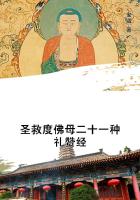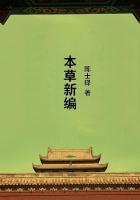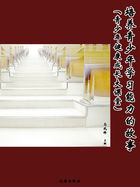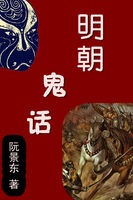The Council of Geneva, at Farel's entreaty, authorized Calvin in September, 1538, to give lectures on theology. Calvin left the duties of the ministry to Farel, his first disciple, and gave himself up patiently to the work of teaching his doctrine. His authority, which became so absolute in the last years of his life, was obtained with difficulty and very slowly. The great agitator met with such serious obstacles that he was banished for a time from Geneva on account of the severity of his reform. A party of honest citizens still clung to their old luxury and their old customs. But, as usually happens, these good people, fearing ridicule, would not admit the real object of their efforts, and kept up their warfare against the new doctrines on points altogether foreign to the real question. Calvin insisted that /leavened bread/ should be used for the communion, and that all feasts should be abolished except Sundays. These innovations were disapproved of at Berne and at Lausanne. Notice was served on the Genevese to conform to the ritual of Switzerland. Calvin and Farel resisted; their political opponents used this disobedience to drive them from Geneva, whence they were, in fact, banished for several years. Later Calvin returned triumphantly at the demand of his flock. Such persecutions always become in the end the consecration of a moral power; and, in this case, Calvin's return was the beginning of his era as prophet. He then organized his religious Terror, and the executions began. On his reappearance in the city he was admitted into the ranks of the Genevese burghers; but even then, after fourteen years' residence, he was not made a member of the Council. At the time of which we write, when Catherine sent her envoy to him, this king of ideas had no other title than that of "pastor of the Church of Geneva." Moreover, Calvin never in his life received a salary of more than one hundred and fifty francs in money yearly, fifteen hundred-weight of wheat, and two barrels of wine. His brother, a tailor, kept a shop close to the place Saint-Pierre, in a street now occupied by one of the large printing establishments of Geneva. Such personal disinterestedness, which was lacking in Voltaire, Newton, and Bacon, but eminent in the lives of Rabelais, Spinosa, Loyola, Kant, and Jean-Jacques Rousseau, is indeed a magnificent frame to those ardent and sublime figures.
The career of Robespierre can alone picture to the minds of the present day that of Calvin, who, founding his power on the same bases, was as despotic and as cruel as the lawyer of Arras. It is a noticeable fact that Picardy (Arras and Noyon) furnished both these instruments of reformation! Persons who wish to study the motives of the executions ordered by Calvin will find, all relations considered, another 1793 in Geneva. Calvin cut off the head of Jacques Gruet "for having written impious letters, libertine verses, and for working to overthrow ecclesiastical ordinances." Reflect upon that sentence, and ask yourselves if the worst tyrants in their saturnalias ever gave more horribly burlesque reasons for their cruelties. Valentin Gentilis, condemned to death for "involuntary heresy," escaped execution only by making a submission far more ignominious than was ever imposed by the Catholic Church. Seven years before the conference which was now to take place in Calvin's house on the proposals of the queen-mother, Michel Servet, /a Frenchman/, travelling through Switzerland, was arrested at Geneva, tried, condemned, and burned alive, on Calvin's accusation, for having "attacked the mystery of the Trinity," in a book which was neither written nor published in Geneva.
Remember the eloquent remonstrance of Jean-Jacques Rousseau, whose book, overthrowing the Catholic religion, written in France and published in Holland, was burned by the hangman, while the author, a foreigner, was merely banished from the kingdom where he had endeavored to destroy the fundamental proofs of religion and of authority. Compare the conduct of our Parliament with that of the Genevese tyrant. Again: Bolsee was brought to trial for "having other ideas than those of Calvin on predestination." Consider these things, and ask yourselves if Fourquier-Tinville did worse. The savage religious intolerance of Calvin was, morally speaking, more implacable than the savage political intolerance of Robespierre. On a larger stage than that of Geneva, Calvin would have shed more blood than did the terrible apostle of political equality as opposed to Catholic equality. Three centuries earlier a monk of Picardy drove the whole West upon the East. Peter the Hermit, Calvin, and Robespierre, each at an interval of three hundred years and all three from the same region, were, politically speaking, the Archimedean screws of their age,--at each epoch a Thought which found its fulcrum in the self-interest of mankind.
Calvin was undoubtedly the maker of that melancholy town called Geneva, where, only ten years ago, a man said, pointing to a porte-cochere in the upper town, the first ever built there: "By that door luxury has invaded Geneva." Calvin gave birth, by the sternness of his doctrines and his executions, to that form of hypocritical sentiment called "cant."[*] According to those who practice it, good morals consist in renouncing the arts and the charms of life, in eating richly but without luxury, in silently amassing money without enjoying it otherwise than as Calvin enjoyed power--by thought. Calvin imposed on all the citizens of his adopted town the same gloomy pall which he spread over his own life. He created in the Consistory a Calvinistic inquisition, absolutely similar to the revolutionary tribunal of Robespierre. The Consistory denounced the persons to be condemned to the Council, and Calvin ruled the Council through the Consistory, just as Robespierre ruled the Convention through the Club of the Jacobins.

